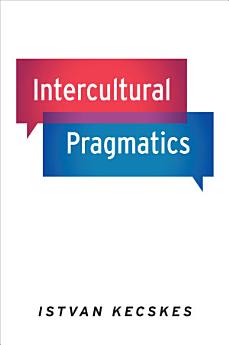Intercultural Pragmatics
พ.ย. 2013 · Oxford University Press
eBook
304
หน้า
family_home
มีสิทธิ์
info
reportคะแนนและรีวิวไม่ได้รับการตรวจสอบยืนยัน ดูข้อมูลเพิ่มเติม
เกี่ยวกับ eBook เล่มนี้
Intercultural Pragmatics studies how language systems are used in social encounters between speakers who have different first languages and cultures, yet communicate in a common language. The field first emerged in the early 21st century, joining two seemingly antagonistic approaches to pragmatics research: the cognitive-philosophical approach, which considers intention as an a priori mental state of the speaker, and the sociocultural-interactional approach, which considers it as a post factum construct created by both speaker and hearer though conversation. Istvan Kecskes, an early proponent of intercultural pragmatics, was among the first to propose merging the two to form the socio-cognitive approach now core to the field. In Intercultural Pragmatics, the first book on the subject, Kecskes establishes the foundations of the field, boldly combining the pragmatic view of cooperation with the cognitive view of egocentrism in order to incorporate emerging features of communication. He argues that people cooperate by generating and formulating intention that is relevant to the given actual situational context. At the same time, however, because of their egocentrism they activate the most salient information to their attention in the construction and comprehension of utterances. Within this approach, interlocutors are considered as social beings searching for meaning with individual minds embedded in a socio-cultural collectivity, and intention is a cooperation-directed practice that is governed by relevance which depends on actual situational experience. Intercultural pragmatics is a rapidly-growing field, and the only subfield of pragmatics to incorporate features of intercultural interaction into mainstream pragmatics. This volume offers both a valuable synthesis of current research and a new way to think about pragmatics.
เกี่ยวกับผู้แต่ง
Istvan Kecskes is Professor of Linguistics and education at the State University of New York, Albany. He is the President of the American Pragmatics Association and Editor-in-Chief of the journals Intercultural Pragmatics (De Gruyter), Chinese as a Second Language Research (De Gruyter) and the Mouton Series in Pragmatics. He is the co-editor of the Journal of Language Aggression and Conflict (Benjamins).
ให้คะแนน eBook นี้
แสดงความเห็นของคุณให้เรารับรู้
ข้อมูลในการอ่าน
สมาร์ทโฟนและแท็บเล็ต
ติดตั้งแอป Google Play Books สำหรับ Android และ iPad/iPhone แอปจะซิงค์โดยอัตโนมัติกับบัญชีของคุณ และช่วยให้คุณอ่านแบบออนไลน์หรือออฟไลน์ได้ทุกที่
แล็ปท็อปและคอมพิวเตอร์
คุณฟังหนังสือเสียงที่ซื้อจาก Google Play โดยใช้เว็บเบราว์เซอร์ในคอมพิวเตอร์ได้
eReader และอุปกรณ์อื่นๆ
หากต้องการอ่านบนอุปกรณ์ e-ink เช่น Kobo eReader คุณจะต้องดาวน์โหลดและโอนไฟล์ไปยังอุปกรณ์ของคุณ โปรดทำตามวิธีการอย่างละเอียดในศูนย์ช่วยเหลือเพื่อโอนไฟล์ไปยัง eReader ที่รองรับ






